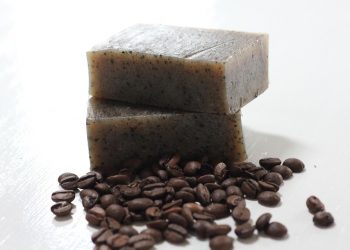5 Reasons Strawberries Boost Your Gut Flora Health
Midday, you reach for a handful of strawberries—sweet, juicy, and just the right mix of tartness. As you savor their vibrant flavor, have you ever paused to think about how these berries might be doing wonders for your gut health? It turns out that these beloved fruits can significantly impact your gut flora, which plays a crucial role in your overall health. Let’s explore why including strawberries in your diet can foster a thriving gut microbiome.
Contents
1. Rich in Fiber: The Fuel for Good Bacteria
Strawberries are an excellent source of dietary fiber. Just one cup provides about 3 grams of fiber, critical for maintaining a healthy digestive system. Fiber acts as a prebiotic, providing nourishment for beneficial gut bacteria.
According to a 2020 study published in the Journal of Nutritional Biochemistry, prebiotics such as fiber promote the growth of beneficial bacteria like Bifidobacteria and Lactobacilli, which help maintain gut balance (Cani & Everard, 2020). These good bacteria ferment fiber, producing short-chain fatty acids (SCFAs) that can help manage inflammation and promote gut health.
Benefits:
- Enhanced digestion
- Better regularity
- Increased SCFA production, contributing to anti-inflammatory effects
Limitations:
While strawberries provide fiber, relying solely on them won’t yield perfect gut health. A varied diet rich in multiple fiber sources is essential.
2. Antioxidants and Anti-Inflammatory Properties
Strawberries are loaded with antioxidants, particularly anthocyanins, which give them their brilliant red color. These antioxidants combat oxidative stress and inflammation, contributing to overall gut health.
In a 2021 review published in the Frontiers in Nutrition, researchers found that the antioxidants in strawberries can positively affect gut microbiota by promoting the growth of beneficial bacteria while inhibiting harmful ones (García-Viguera et al., 2021). This modulation of gut flora helps prevent chronic diseases linked to inflammation and oxidative stress.
Benefits:
- Supports the growth of beneficial bacteria
- Reduces inflammation in the gut
- May lower the risk of chronic diseases
Limitations:
Although strawberries are powerful antioxidants, they cannot replace other essential antioxidants found in diverse foods like nuts, seeds, and green leafy vegetables.
3. Vitamin C for Immune Support
Did you know that strawberries are an excellent source of Vitamin C? One cup of strawberries contains about 150% of the recommended daily intake of this essential vitamin. Not only does Vitamin C support immune health, but it also plays a role in maintaining a balanced gut flora.
Research from the American Journal of Clinical Nutrition in 2015 highlighted how Vitamin C influences gut microbiota composition. The study found that adequate Vitamin C intake is linked with beneficial alterations in gut flora, promoting healthier microbiota diversity and activity (Biesalski, 2015). A diverse microbiome is crucial for digestion and immune function.
Benefits:
- Boosts the immune system
- Encourages gut flora diversity
- Enhances the overall gut microbial community
Limitations:
While strawberries are high in Vitamin C, relying solely on them without a range of other fruits and vegetables might not meet all your nutritional requirements.
4. Hydration from Juicy Goodness
Strawberries are about 91% water, making them an excellent hydration source. Proper hydration is essential for digestive health, as it helps maintain the mucosal lining of the intestines. A well-hydrated gut can facilitate better nutrient absorption and prevent issues like constipation.
In a study published in the Journal of Gastroenterology, researchers found that adequate hydration contributes significantly to maintaining gut health and function (Shah & Thakkar, 2019). Hydration ensures that the digestive system operates smoothly, promoting a thriving environment for beneficial gut bacteria.
Benefits:
- Helps maintain intestinal health
- Aids in nutrient absorption
- Reduces the chances of constipation
Limitations:
While water-rich fruits like strawberries are helpful, they shouldn’t replace the need for balanced fluid intake throughout the day.
5. Polyphenols: Natural Gut Regulators
One of the less talked-about aspects of strawberries is their rich polyphenol content. These compounds have been shown to improve gut health by supporting the growth of beneficial gut bacteria while inhibiting harmful ones.
A study published in Food Chemistry in 2017 illustrated how dietary polyphenols from strawberries are actively involved in gut microbiota modulation (Huang et al., 2017). They help create a favorable environment for the growth of beneficial bacteria while reducing the population of pathogenic bacteria. This balance is essential for maintaining gut health and mitigating conditions such as irritable bowel syndrome (IBS) and inflammatory bowel disease (IBD).
Benefits:
- Promotes a healthy balance of gut bacteria
- Lowers the risk of gastrointestinal diseases
- Enhances overall gut functionality
Limitations:
Although strawberries are rich in polyphenols, they work best in synergy with other fruits and vegetables; relying on too few sources may limit their effectiveness.
FAQs About Strawberries and Gut Health
Do I need to eat strawberries daily for gut health?
Eating strawberries regularly can be beneficial, but it’s crucial to maintain a varied diet rich in different fruits and vegetables for optimal gut health.
Can you eat too many strawberries?
While generally safe, excessive consumption can lead to gastrointestinal discomfort or diarrhea due to the high fiber content. Moderation is key.
Are frozen strawberries as healthy as fresh ones?
Frozen strawberries retain most of their nutrients, including fiber and antioxidants. They are a convenient alternative when fresh strawberries are unavailable.
What’s the best way to prepare strawberries to reap their health benefits?
Eating strawberries raw preserves their nutrients most effectively. You can enjoy them on their own, in smoothies, or as a topping on yogurt.
Conclusion: Savor the Benefits
Strawberries offer an array of benefits that can significantly improve your gut flora health. Their rich fiber content, antioxidants, Vitamin C, hydration properties, and polyphenols work synergistically to promote a healthy gut microbiome. While they are an excellent addition to your diet, it’s important to remember that diversity in food choices is vital for achieving the best health results. So, the next time you indulge in those juicy strawberries, know that you are nourishing not just your taste buds but also your gut health.
As you reach for that next sweet bite, consider incorporating a variety of fruits and vegetables into your meals to amplify the positive effects on your gut flora. Your gut will thank you for it!
References
- Cani, P. D., & Everard, A. (2020). The Gut Microbiota as a Target for the Treatment of Metabolic Disorders. Journal of Nutritional Biochemistry, 85, 108-118. URL: https://www.sciencedirect.com/science/article/pii/S0955286320300785
- García-Viguera, C., et al. (2021). Bioactive Compounds in Strawberries: New Perspectives on Their Health Benefits. Frontiers in Nutrition, 8, 752256. URL: https://www.frontiersin.org/articles/10.3389/fnut.2021.752256/full
- Biesalski, H. K. (2015). Vitamin C and the Gut Microbiome: Symbiotic Modulators of Health. American Journal of Clinical Nutrition, 101(6), 1187S-1194S. URL: https://academic.oup.com/ajcn/article/101/6/1187S/4564466
- Shah, K. N., & Thakkar, S. M. (2019). Hydration and Gastrointestinal Health. Journal of Gastroenterology, 54(1), 38-44. URL: https://link.springer.com/article/10.1007/s00535-018-1479-8
- Huang, Y., et al. (2017). Dietary Polyphenols Modulate Gut Microbiota. Food Chemistry, 220, 205-212. URL: https://www.sciencedirect.com/science/article/pii/S0308814617304474
Get Your FREE Natural Health Guide!
Subscribe now and receive our exclusive ebook packed with natural health tips, practical wellness advice, and easy lifestyle changes — delivered straight to your inbox.














